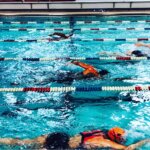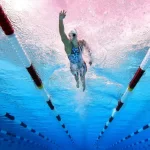The time between November and April is generally the time when triathletes are done with racing and spending some time with family and taking care of things they didn’t have time for during the season. Many coaches do not like calling this the “off season” and this time of year has been given many different names. For me, well, it is exactly that – the OFF season. This doesn’t mean, however, that you should just sit on the couch and binge watch your favorite shows for months on end. It means the season – you are racing or preparing for a race. In the off season, you are still being physically active, it’s just to prepare for the entire next season, not a specific race.
The answer to the question – should you train in the off season – is yes. However, the training should be a bit different than the training you do as racing season gets closer. Why? Because having a strong off season prepares you for a stronger, more efficient and faster next season. Let’s face it, you can’t just take 3-5 months off from any type of training and come back as good as you were when you started the break. Here are some things do to in your off season to ensure you have a successful next season:
- Determine your races for next season – while you don’t have to get every single race you do on the calendar, it is important to know your most important race of the year. It’s helpful to have a rough estimate when you plan other races. The longer the race, the more time you will need to successfully prepare for that race. When you are training for a half Ironman, it’s not a big deal to add in a 5K or sprint triathlon anywhere in the season, but knowing when your most important race of the season is sets the tone for your entire training schedule.
- Set your goals – what exactly is it that you wish to accomplish in the next season? Finish your first triathlon? Set a personal record (PR)? Tackle a longer distance? Conquering an ocean swim? It’s important to know exactly what you would like to achieve before you go about deciding how to train for it.
- Assess your strengths and weaknesses – now figure out where your time will best be spent to improve. If you have raced in the past, look at your results in relation to the rest of your age group. If you rank in the top 25% of the swim, bottom 20% of the bike and top 50% of the run, you can easily determine that putting more time in on the bike – and working on technique – will yield strong results. If next year will be your first year, try to figure out which of the 3 disciplines you feel you struggle with. Keep in mind that the bike is the longest portion of any triathlon, so if you’re really not sure, you can’t go wrong putting some quality time in on the bike.
Once you have put in some time into considering the above, it’s time to put that off season training into action. Consider your races, what goal(s) you have for those races, how you can achieve those goals by improving your weakness and then start working on it! If you’re not sure quite how to put this all together, contact me. I have found that the off season is the absolute best time to work on your weaknesses and set a strong foundation for a successful season and I can help you achieve your goals.
Train Right, Tri Right!
Coach MJ







